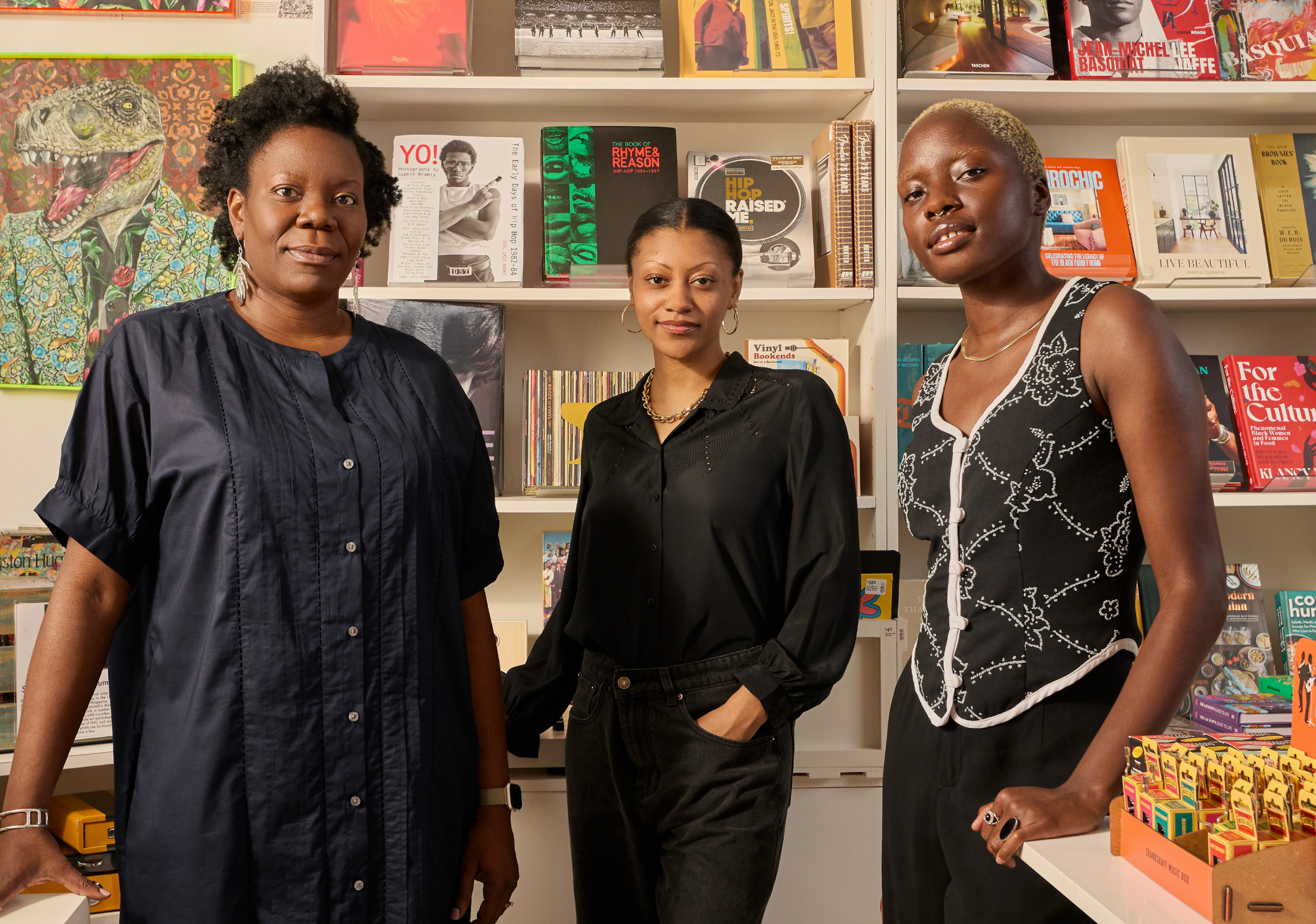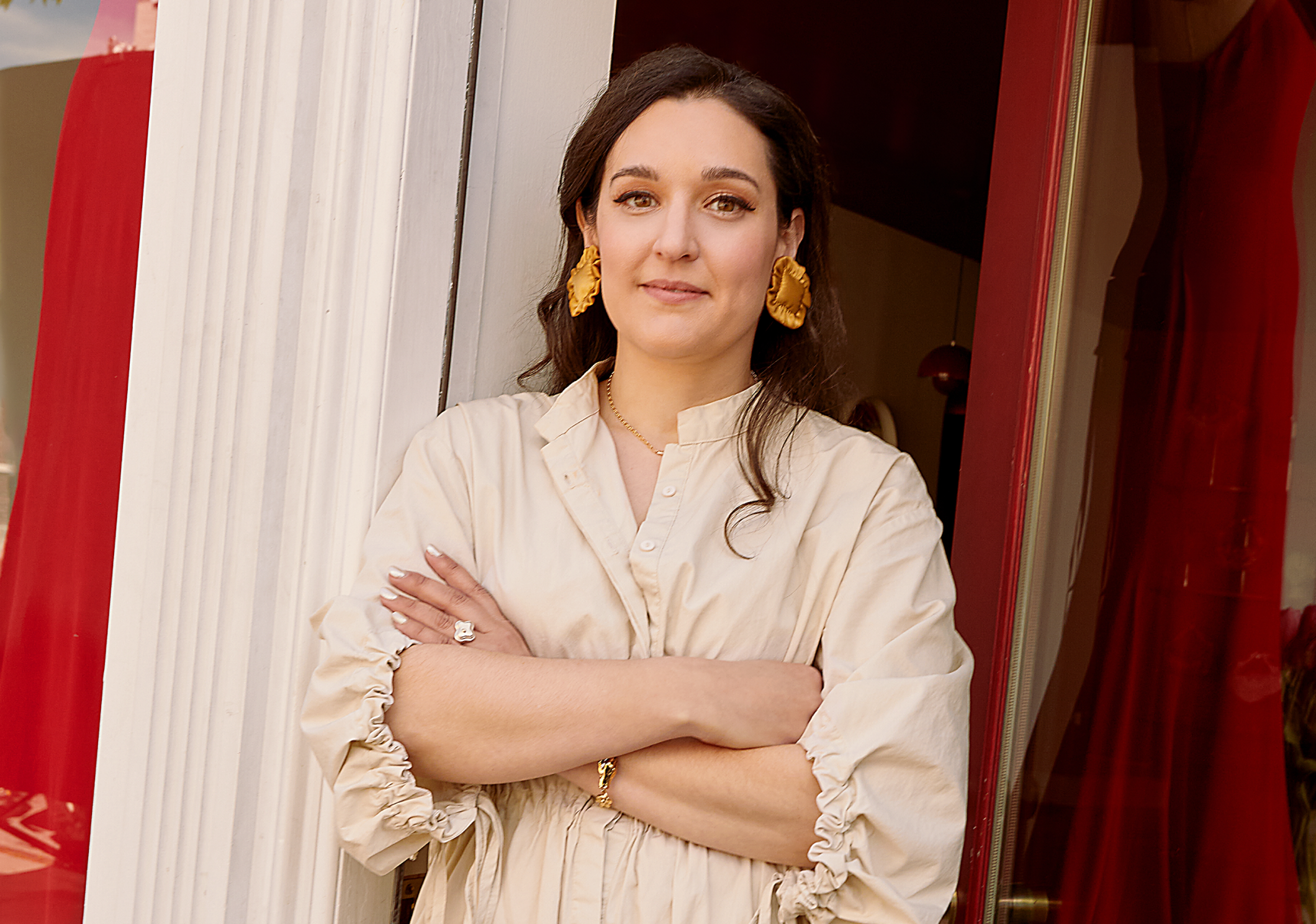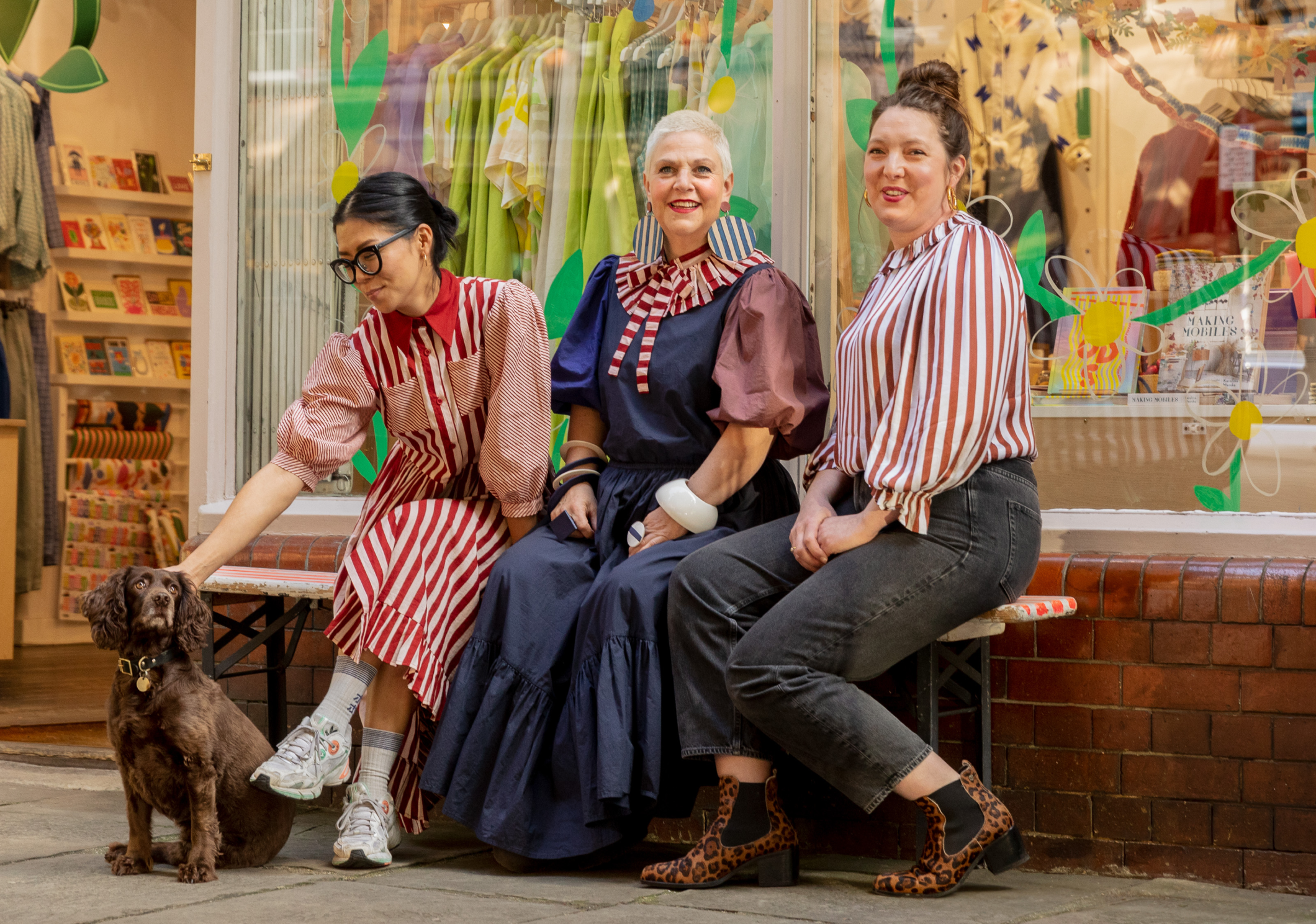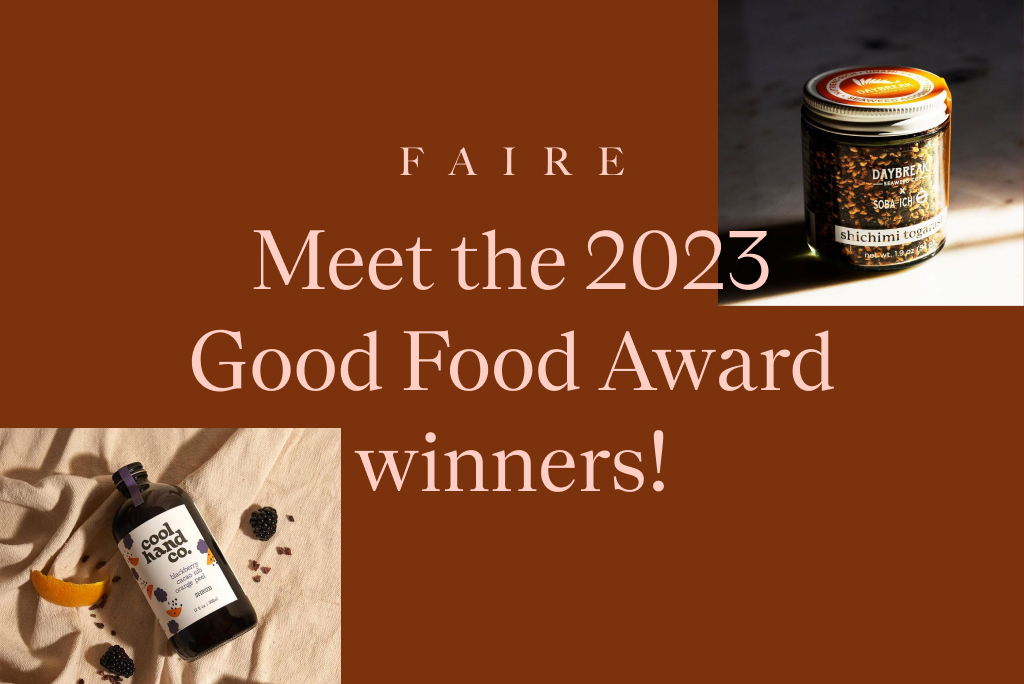

Things that go hand in hand: tomatoes and basil, nuts and berries, food and culture. As society moves toward more conscious and sustainable living, it makes sense we’re experiencing a major shift in the food and beverage industry. In this new era, consumers value and prioritize quality, tasty, and responsible products.
To celebrate those driving this change in the food system, the Good Food Awards honors exceptional crafters across 18 categories who top the charts in a blind tasting and meet rigorous environmental and social responsibility standards. More than 2,000 small businesses and producers from all 50 states submit their unique, delicious, and sustainably conscious products for a chance to receive an esteemed Good Food Award.
Faire is proud to be a lead sponsor of the 2023 Good Food Awards, and more than 50% of this year’s Good Food Award winners (in non-alcoholic categories) are on Faire. The majority of these thriving brands rely on Faire’s platform to reach independent retailers and specialty grocers.
Where is “good food” headed next? We spoke to a few of this year’s winners about their experiences building their brands and what they’re looking toward in the future.
Shop the Good Food Awards collection on Faire
Avery Resor, Co-founder, Daybreak Seaweed
Makers of: Sustainably grown, nutrient-dense, delicious West Coast seaweed grown from regenerative ocean farmers who fight climate change.
Winning product: Yuzu Shichimi Togarashi
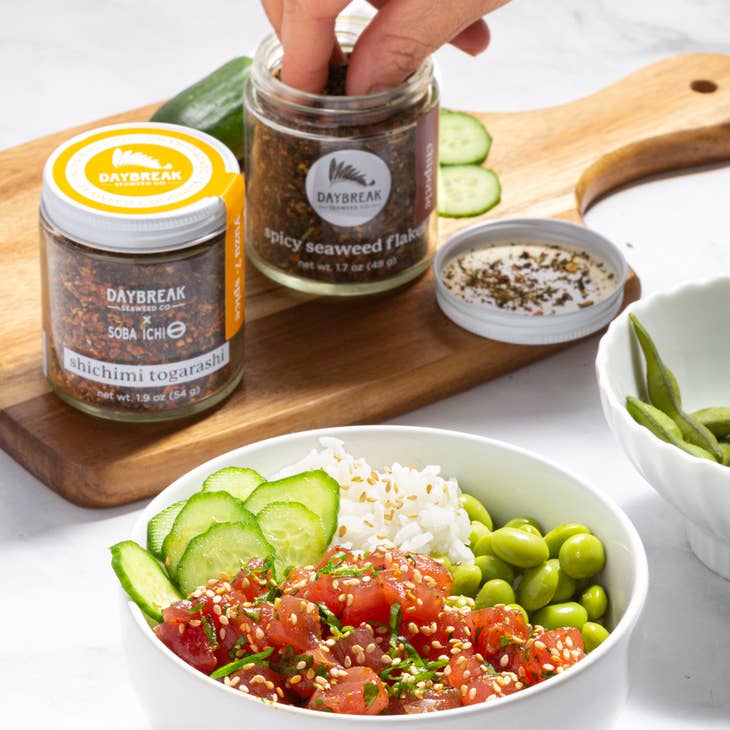
What’s your core mission and/or most closely held values?
We started Daybreak Seaweed six years ago to support seaweed farmers and all of the hard work they do, both for their communities and for the environment. We also wanted to bring seaweed into the everyday kitchen.
How has your business changed since joining Faire?
We started Daybreak Seaweed in California, so our sales strategy focused specifically on California and growing into the Pacific Northwest. Faire opened up essentially the whole country to us. We get orders from people on the East Coast, Hawaii, Alaska, all over, because of Faire connecting us directly.
What’s top of mind for your business in the year ahead, and how are you tackling it?
Top of mind is growing sales. In the past, we were limited by inventory. We didn’t have enough seaweed and would always sell out of our products. This year, for the first time in six years, we have enough seaweed inventory. Now we have as many products as we are projected to sell, so growing our sales is our top priority.
What changes are you seeing in consumer behavior or taste as it relates to your category?
We’ve noticed two changes over the past few years. One: People are realizing there’s many different ways to use seaweed in their cooking, in their snacking, in their everyday life. Second: More people are cooking at home. These two changes combined means more people are familiar with seaweed as an ingredient, which makes our lives a little easier, although we still have a huge communication and education piece in our marketing.
What are your hopes for the future of your category?
I’ve seen other categories with a lot of small, independent businesses who are trying to do the right thing for the environment and for their communities get bought or forced to sell to larger corporations.
I don’t want to see that replicated in our category, so I hope that we keep growing the number of producers and crafters as well as the scale of our category. I hope that there are tons of small producers like us that continue to be successful instead of one or two companies taking over the whole industry.
Shop Daybreak Seaweed on Faire
Lucas Ryden, Founder, Cool Hand Co.
Maker of: A unique line of fresh, complex, and bursting-with-flavor shrubs with an emphasis on health and wellness.
Winning product: Blackberry Cacao Nib Orange Peel Shrub
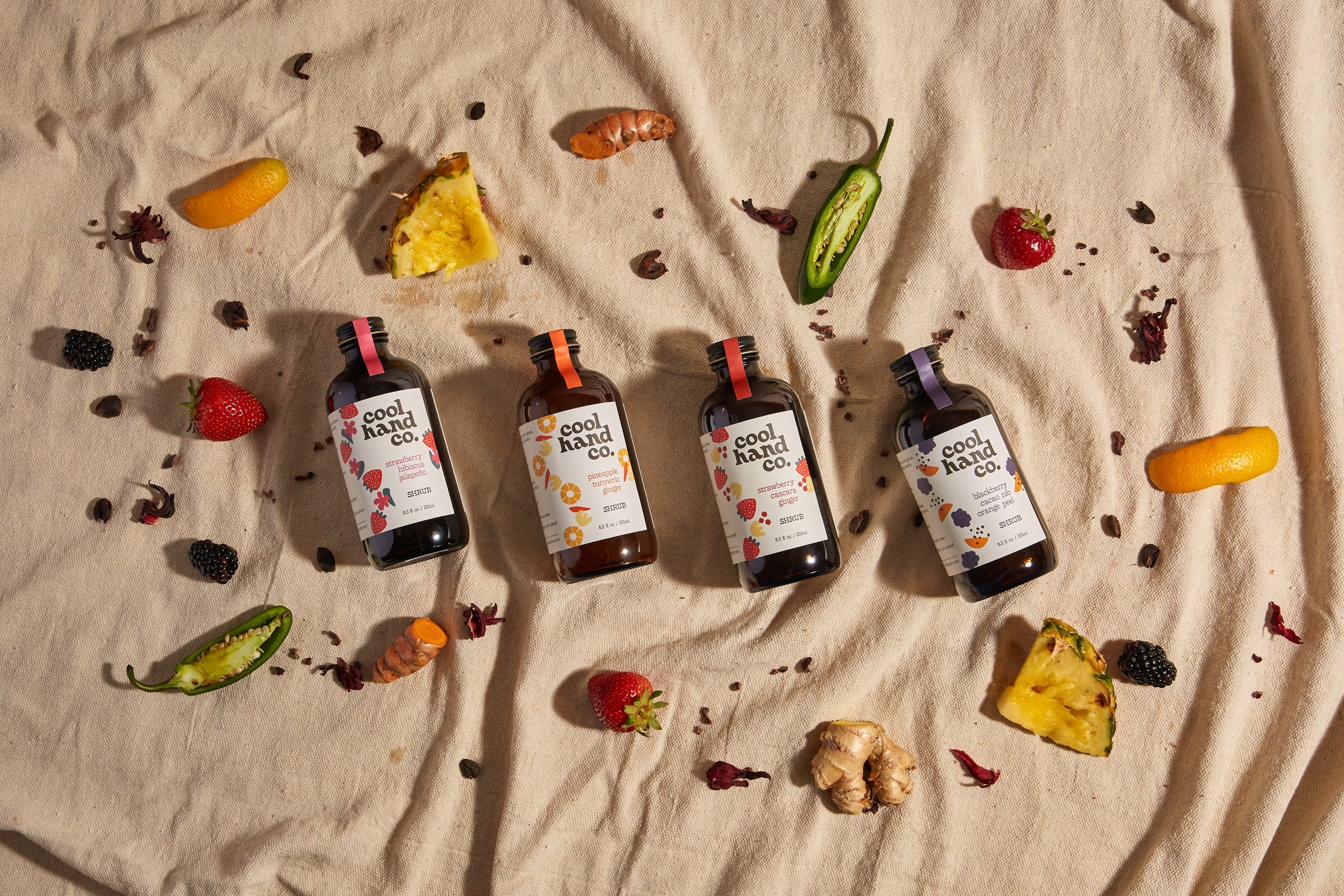
What’s your core mission and/or most closely held values?
As a bartender, I noticed that using seasonal ingredients forced you to change the menu a lot, given what’s in season at the time. Shrubs are a really natural way to preserve seasonal ingredients and make them more accessible. I saw an opportunity to work with local farms to source seasonal products and preserve them naturally with vinegar and sugar and without stabilizers or additives, for use all year long. My vision and mission is to serve both people that want to make drinks at home as well as bars and bartenders.
How has your business changed since joining Faire?
Obviously, 2020 was funky and slow for most businesses, so 2021 is when I started pushing to get my product out to people in the world and joined Faire. I built my wholesale program and business on grassroots growth, working through my network, driving around and popping into places. But I’m a one-man show based in San Diego. Faire has been great because it opens the door up to retailers—even bars and restaurants—and other regions that I wouldn’t even know about or have the capacity to approach.
It’s been really great to organically build an umbrella of smaller accounts that share the same values, are more personable, and that you can have personal relationships with.
What’s top of mind for your business in the year ahead, and how are you tackling it?
I’m currently working on scaling the product, building more inventory, and getting a bigger kitchen space. I’ve been co-oping a space, which is a good way to start out, but I’m beginning to outgrow the space, so now it’s time for a little bit more growth. I also want to get local distributors involved for actual bar-restaurant distribution and continue to grow my wholesale online through Faire.
My sales approach has been a bit more old-school, but Faire has been really helpful because it automates a lot of that work. You set up your shop, and it’s easy for people to find you. A lot of companies and retailers actually find me on Faire and order directly through the platform. It streamlines not only ordering but also payments and that invoice-chasing-type stuff.
What changes are you seeing in consumer behavior or taste as it relates to your category?
It’s funny—when I started making and bottling shrubs, I always thought, “Oh, I came up with something that’s about to blow up and get trendy.” It’s been eight years, and the vast majority of people still have never heard of a shrub or have no idea what it is.
The educational component of business remains super important. I always figured that by now some bigger brand would put out a shrub, get in a bunch of large retailers, and blow up the category, basically doing the legwork of the education for me. I don’t know if that would be a good or bad thing, but I’m confident in my product line that if all of a sudden everybody knew what shrubs were, we would still be competitive. It’s interesting that no large beverage companies have yet to put out a mass-produced shrub or drinking vinegar.
What are your hopes for the future of your category?
I’m sure that more brands my size are fighting the same fight—to build a name in their communities, educate people, and make shrubs more of a household name.
I think it takes the right kind of marketing, and I’m moving toward the non-alcoholic drink space. Marketing more for soda alternatives or mocktail alternatives with shrubs is useful, as some of my better customers don’t drink or stopped drinking. Shrubs are perfect because they have that life from the vinegar that gives it a kick without any alcohol.
It comes down to really good marketing campaigns of, “What is a shrub?” and getting people to hear that word and not think of a little plant.
Kevin Doyle, Co-founder, Mikava
Makers of: Rare, distinctive, and award-winning coffee with special flavor profiles and a commitment to the craft of coffee.
Winning product: Gesha Reserva
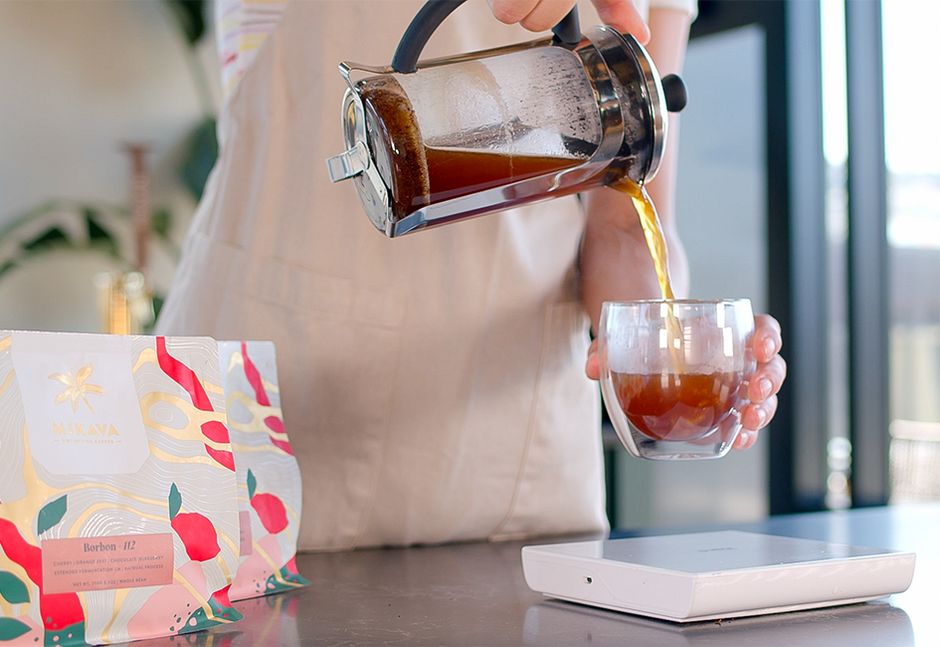
What’s your core mission and/or most closely held values?
Mikava’s mission is to ensure the highest quality coffee and experience for our customers. We maintain our values of excellence, community, innovation, and trust with everything we do.
We’re on a short list of coffee farmers that are vertically integrated from farm to cup, controlling every step of the process, from cultivation to roasting. The Mikava journey begins at the farms, and by operating the farms every day, we increase our customers’ experience by ensuring fresh, unique, and complex coffees.
How has your business changed since joining Faire?
Since joining Faire, we’ve seen an increase not only in sales but also in networking opportunities and relationships. With Faire, we’re able to keep the integrity of our coffee journey truly farm to cup by working directly with independent retailers and grocers instead of a big corporate structure.
What’s top of mind for your business in the year ahead, and how are you tackling it?
We’re focused on bringing new, innovative coffees to market through increasing our online presence with Faire’s international wholesale and influencer partnerships. Our plan is to continue this vertical structure and open cafés where customers experience and understand the journey of coffee and where farmers visit, brew their coffees, and share their experiences.
What changes are you seeing in consumer behavior or taste as it relates to your category?
The current ideology shaping the global coffee industry is that customers want higher quality products and more direct, customer-centric hospitality. Customers want bold, unique, and fresh coffee from value-driven businesses that are genuine, socially responsible, and sustainably focused.
What are your hopes for the future of your category?
We’re continuing to innovate and experiment with our coffee production and work with local farmers to help their business as well. For the future, we hope to see a commitment to sustainability within the coffee industry.
Congratulations to all of the 2023 Good Food Award winners. Which ones can you find on Faire? Here’s a full list:
Barnacle Foods, Bayview Pasta, Bearclaw Kitchen, Bibamba Artisan Chocolate, Big Spoon Roasters, Bird Rock Coffee Roasters, Bow Hill Blueberries, Burly Beverages, Chef Sherri Sauces, Chio, Chukar Cherry Company, Cool Hand Co., Coro Foods, DRAM, Daybreak Seaweed, El Guapo, Eliot’s Nut Butters, Exquisito Chocolates, Fabrique Delices, French Broad Chocolates, Fruition Chocolate Works, Fuego Fermentations, Gilbert & Bernard, Girl Meets Dirt, Good Molly’s, Goodnow Farms Chocolates, Gotham Chocolates, Heirloom Coffee Roasters, Holmes Sweet Home, Huggins Family Farms, Hungry Bird Eats, Jacobsen Salt Co., Joe Bean Coffee Roasters, Jojo’s Sriracha, Madhu Chocolate, Margot’s Morsels, Marsh Hen Mill, Mikava, Moku Chocolate, Momo Cocoa, Monsoon Chocolate, Mountain Girl Pickles, North Country Charcuterie, Nuts on the Run, OlyKraut, Olympia Provisions, Pacific Pickle Works, Pilot Kombucha, Purely Drinks, RAFT, Ragged Coast Chocolates, RedCamper, River-Sea Chocolates, Runamok, Sea to Shore Seafood Co., Sfoglini, Small Batch Kitchen, Small Batch Organics, Smithereen Farm, Smoking Goose, Sun Raised Foods, Superfrau, Sweet Grass Dairy, Sweet’s Elderberry, The Home Pantry, Valhalla Organics, Videri Chocolate Factory, Wise Goat Organics, Maverick Chocolate Company, Mt. Hope Farms, Pastificio Boulder, Seahorse Chocolate, and Sibeiho

